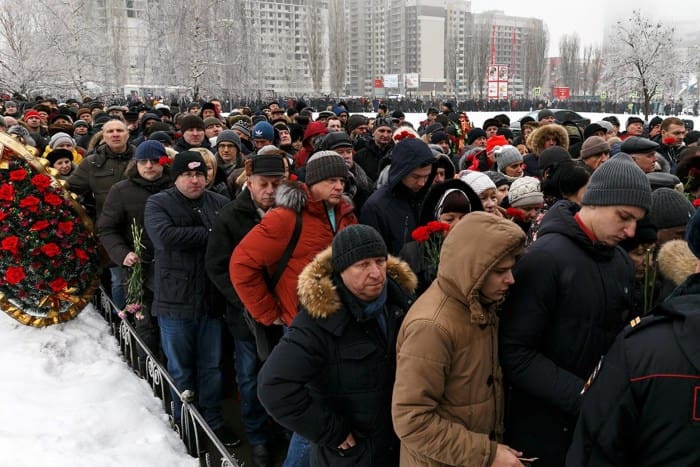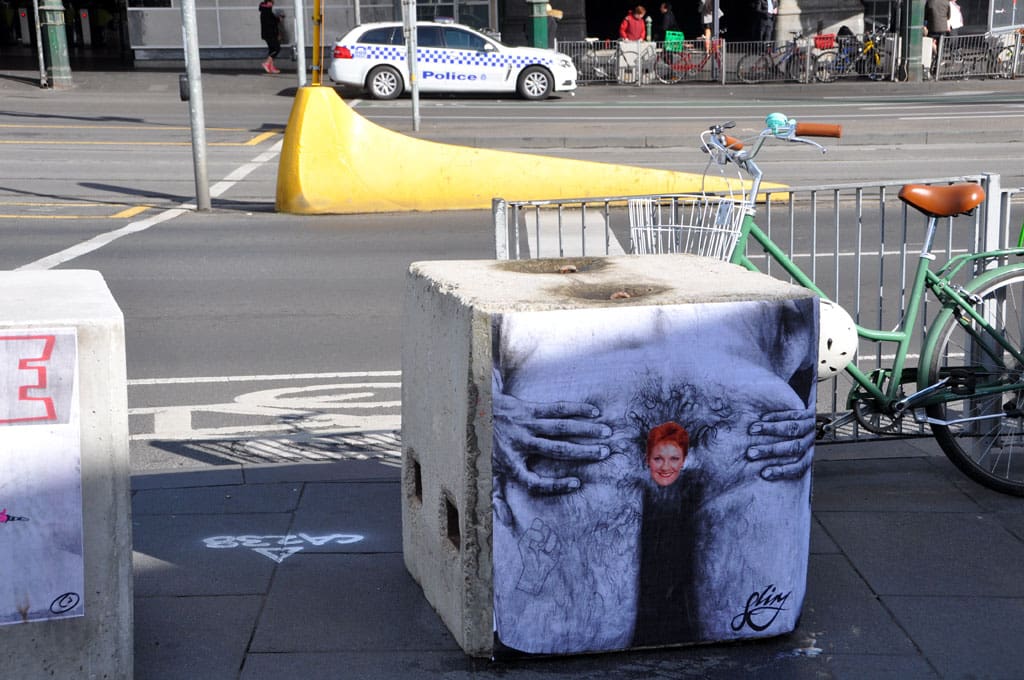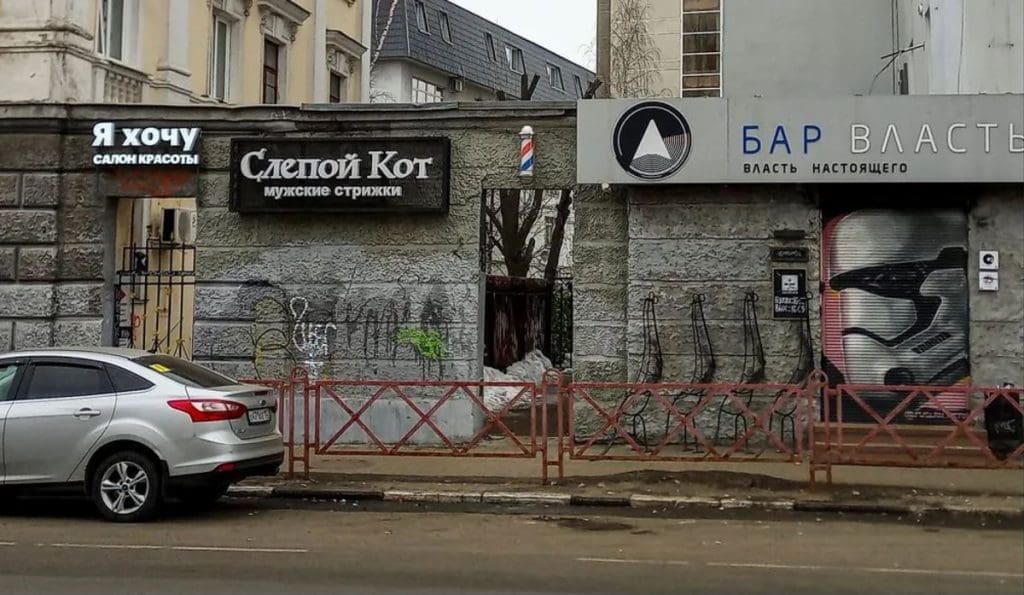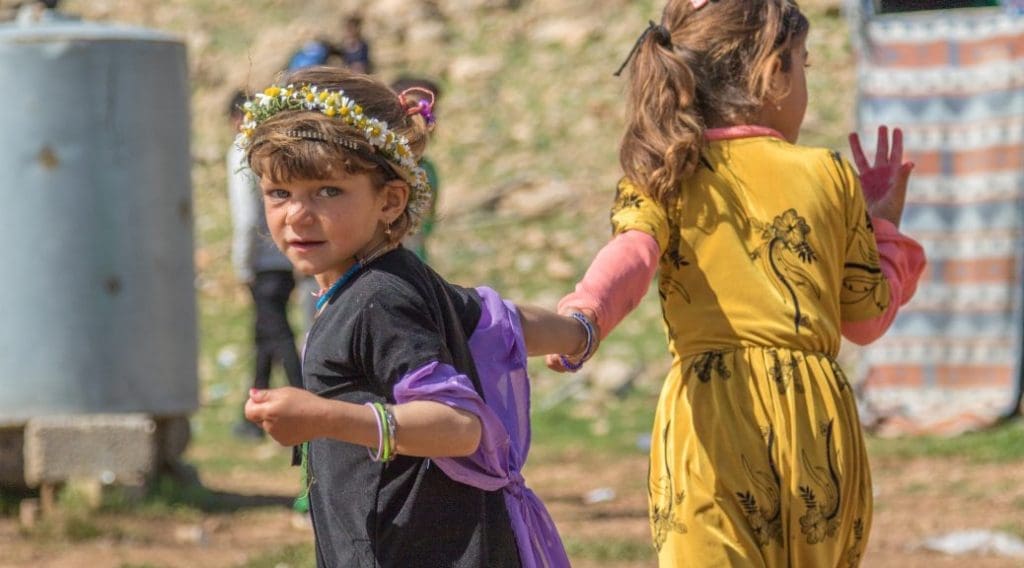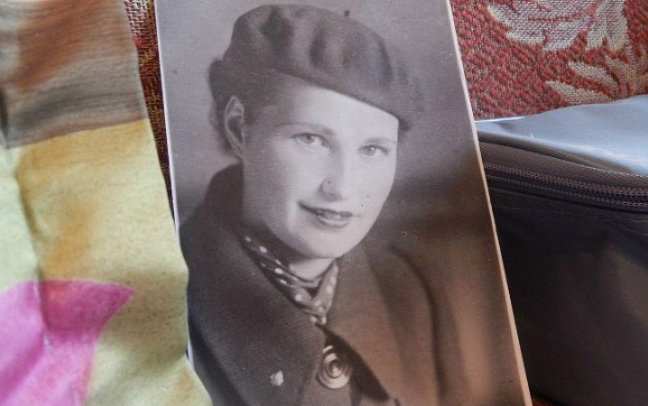The Anthropology of Death
by Igor Yakovenko for their blog (original post in Russian)
translated by The Russian Reader (original post in English)
13 February 2018
When Russian MP Vyacheslav Nikonov, speaking on the TV program Evening with Vladimir Solovyov, suggested honoring Roman Filippov, the SU-25 pilot who was killed in Syria on 3 February, with a minute of silence, the American expert [sic] Gregory Vinnikov retorted, “He quit his hut and went to fight for the land of Syria.”
This provoked Nikonov and Solovyov’s other guests to try and kick Vinnikov out of the studio. Ultimately, they were joined by Solovyov himself, who told the studio and home audience that there is a “respect for death” in Russia. So Vinnikov had to leave.
When Dmitry Gudkov was still an MP, he tried twice—in February 2015 and February 2016—to ask his fellow MPs to honor the memory of Boris Nemtsov, who was assassinated a few steps away from the Kremlin, with a minute of silence. The MPs refused both times. The degree to which death is respected in Putinist Russia depends on the dead person’s political stance.
In recent years, the Putin regime has murdered over ten thousand Ukrainian citizens, and, in cahoots with the Assad regime and its accomplices, has murdered several hundred thousand Syrian citizens. No one on Solovyov’s program or in the Russian State Duma has ever proposed honoring these victims of Putinist fascism. The degree to which death is respected in Putinist Russia depends on ethnicity and nationality. The death of “one of our boys” is deserving of respect, while the death of a stranger or outsider is not.
Roman Filippov was a fighter pilot. He flew an attack aircraft in the skies of a foreign country. His objective was to “destroy ground targets,” which included killing people on the ground. We do not know how many Syrians were killed by Filippov, but he was an enemy of the Syrian people. When he was dying, Filippov cried out, “For the boys!” Neither Syria nor its people have attacked Russia. Filippov and his military buddies (“the boys”) attacked Syria and its people on Putin’s orders. The Syrians have been fighting a war at home against invaders (Russians, Iranians, Turks) and the puppet dictator Assad.
Putin awarded the title of Hero of Russia to Filippov, who was made an invader by his grace and was killed as an invader in a foreign country. Tens of thousands of people attended Filippov’s funeral in Voronezh. The media say the figure was thirty thousand. Judging by the photographs and videos from the scene, this is no exaggeration. I don’t agree with those who claim all those people were forced to attend. Many of them clearly believed a hero who had perished defending the Motherland was being buried. Television has a firm grip on them.
A few days after Filippov’s funeral, a number of Russian nationals, employees of the Wagner Group, a private military contractor, were killed in a clash with the US-led coalition. These are the selfsame Russian servicemen whom Putin has camouflaged as “mercenaries.” It is more convenient if he can lie and say Russia has no troops there. It is not known for certain how many Russian soldiers were killed during the incident. Some sources have claimed that six hundred were killed, while other sources have reported it was two hundred. RIA Novosti News Agency reported that one Russian was killed, and he was a member of Eduard Limonov’s The Other Russia party to boot. Meaning that since he used to be in the opposition, we need not feel sorry for him.
Just like Filippov, these people died because Putin dispatched them to Syria. They were just as much invaders as Filippov. However, their “heroism” has for some reason been passed over in silence. The likelihood any of them will be awarded the title Hero of Russia is nil. They will be shipped home and buried in the ground quietly and anonymously. I can guarantee no one on Solovyov’s program will suggest honoring their memory. In Putinist Russia, the only “respectable” death is a death acknowledged by the authorities and confirmed on television.
The Putin regime has a flagrantly necrophiliac tendency. Even under Stalin, there was nothing like this savoring of death and pride in the fact that more Russians perished in the Second World War than anyone else. Nowadays, this corpse rattling has become the the country’s principal moral linchpin.
Not all corpses can be rattled, however. The Putin regime differs in this sense from Hitler’s Germany and other fascist regimes, which divided people into superior and inferior races. Yes, the Putin regime also endows ethnic Russians with special qualities: a particular spirituality and other manifestations of an extra chromosome. But even among ethnic Russians, the regime has constantly differentiated. Suddenly, the descendants of Siege of Leningrad survivors were discovered to have special genes. However, these genes were not discovered in all descendants, but only among Putin and the members of his retinue. It now transpires that the regime has a rating for Russian nationals who have perished in a foreign country, defining which of the dead deserves to be remembered, and which deserves to be forgotten.
Translated by the Russian Reader
Featured image: The funeral of Roman Filippov, a Russian fighter pilot whose plane was shot down in Syria on February 3, 2018. Filippov was buried in Voronezh on February 8. This photo was posted on the Russian Defense Ministry’s Facebook page. Courtesy of Delovoi Peterburg

